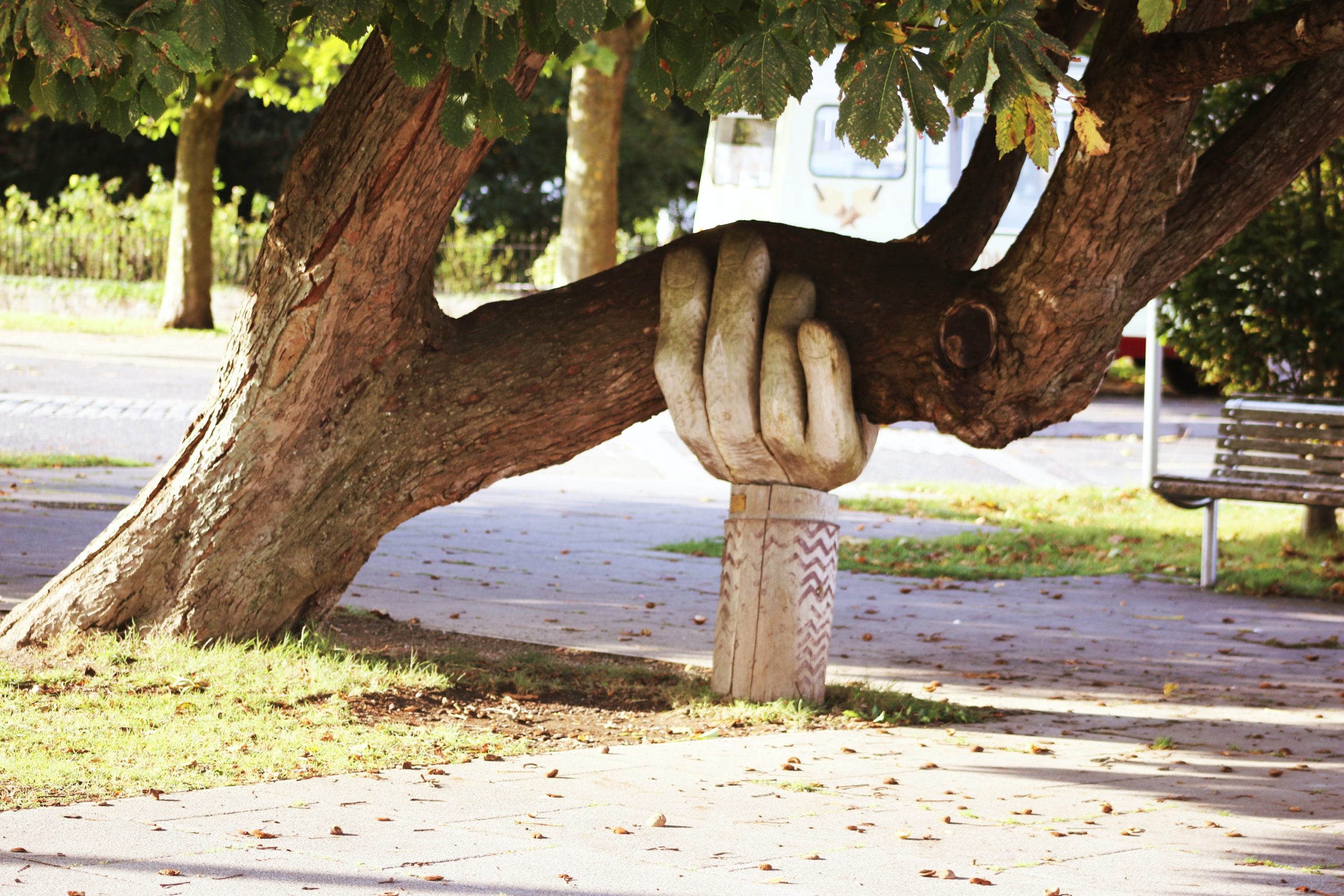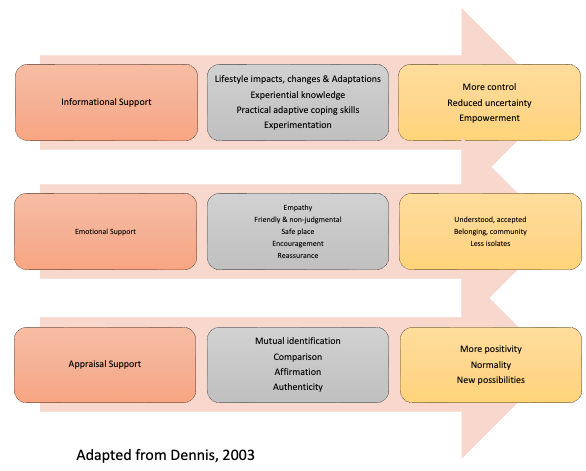Benefits of peer support

Peer support, during the rehabilitative process, can improve motivation and long-term health outcomes. It can help people stay in treatment, reduce hospital use, increase independence, and a sense of hope. Peer support can build a person’s self-confidence, sense of empowerment, and ability to function. It can also lead to improved physical, mental, emotional, and spiritual health
Perceived attributes and benefits of peer support
Three critical attributes of peer support emerged from a concept analysis of peer support done by Dennis (2003). These attributes are: emotional, informational, and appraisal support. These attributes are the supportive functions of peer relationships and their usefulness depends on the stressors being experienced and the outcomes desired.
- Emotional support provides empathy and encouragement and can result in feelings of being understood and accepted.
- Informational support involves the provision of practical adaptive coping skills (grey column) resulting in more control, reduced uncertainty, and empowerment.
- Appraisal support involves mutual identification, comparison, and affirmation and can result in more positivity and a sense of normality.

Positive Outcomes:
It is proposed that peer support has direct, buffering, and/or mediating effects on well-being (Dennis, 2003).
In the direct effects model, peer support:
- decreases isolation and loneliness
- influences health practices
- promotes psychological/emotional well being
- provides information that influences health and well-being, and
- promotes recovery from physical illness.
Peer support can also buffer the effect of stress on health by:
- reducing the harm caused by stressors
- broadening the number of coping strategies a person has
- permitting discussion of coping strategies and problem-solving approaches
- highlighting norms through social comparison
- inhibiting unhelpful (maladaptive) responses, and
- counteracting the self-blame that hampers active coping efforts
Peer support can indirectly affect well-being in a number of ways (mediating effects):
- positive reinforcement of performance accomplishments
- role modeling (vicarious experience and observational learning)
- providing opportunities for comparison to support self-evaluation and motivation
- teaching coping strategies
- positively interpreting emotional distress and
- encouraging cognitive restructuring (in other words, changing the way people think about what is happening).
Negative Outcomes:
There are also some possible negative consequences of peer support.
- Possibility of conflict, criticism, emotional over-involvement, and reduced feelings of self-efficacy
- The risk of negative outcomes can be minimized by following the core values and principles of peer support.
Instructor Notes:
Concepts: Key Concepts to Cover
- 3 key attributes of a peer visitor: Emotional, appraisal, and informational
- Define each 3 with examples and the outcomes
- Positive outcomes of peer support on well being: Direct, buffering and mediating
- Direct benefits of peer support on well being
- Lessens isolation and loneliness, promotes recovery etc…
- Buffering effects of peer support on well being
- Reduces harm caused by stressors, increasing coping strategy resources etc…
- Mediating effects of peer support for well being
- Positive reinforcement, role modelling etc…
- Possible negative outcomes of peer supports
- Conflict, criticism, emotional over-involvement etc…
Reflective Exercise Facilitation:
- Ask the class: What they think the short term benefits of peer support are as well as what they think the long term benefits are
- Allow people to raise their hands to share their thoughts
- Ask the class to: Go around the circle and share what they perceived to be the biggest benefit of peer support in their own amputation experience

